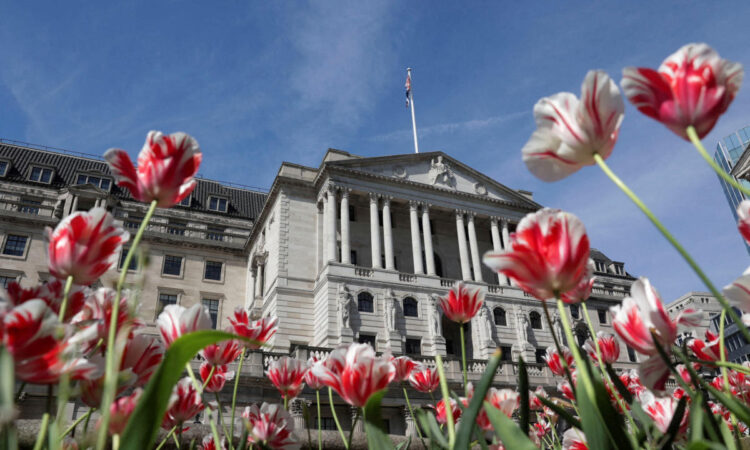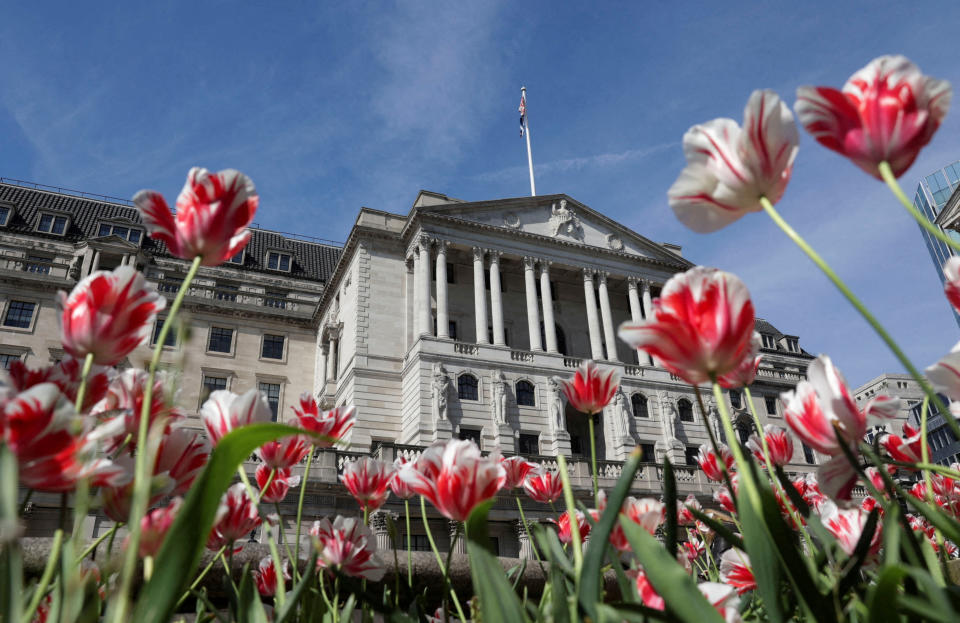

Bank of England (BoE) policymakers have kept interest rates on hold at 5.25% for a sixth consecutive time, which comes as no surprise as markets expect rates to come down only in the summer.
However, the decision was not unanimous. The nine members of the monetary policy committee (MPC) were split, with seven voting to hold rates and two voting to cut to 5%.
Bank governor Andrew Bailey said he was “optimistic” that inflation will keep falling in the coming months as he signalled policymakers were closer to reducing the cost of borrowing.
Andrew Bailey, Sarah Breeden, Ben Broadbent, Megan Greene, Jonathan Haskel, Catherine L Mann and Huw Pill voted in favour of the proposition. Two members — Swati Dhingra and Dave Ramsden — voted against the proposition, preferring to reduce Bank Rate by 0.25 percentage points, to 5%.
Threadneedle Street has raised, and then kept interest rates at a high level, in an attempt to slow the pace of inflation but this has added pressure to homeowners as mortgage rates have surged.
Sticky inflation is the reason rates have been high but the UK rate of inflation came in at 3.2% in March, the lowest since September 2021, according to figures from the Office for National Statistics (ONS).
Inflation is expected to fall more than previously thought over the coming years, the Bank of England has projected, dropping below its 2% target to 1.5% in 2026.
Governor Bailey said things are moving in the right direction but fell short of giving an exact date for a rate cut.
“We’ve had encouraging news on inflation and we think it will fall close to our 2% target in the next couple of months,” he said.
“We need to see more evidence that inflation will stay low before we can cut interest rates.
“I’m optimistic that things are moving in the right direction.”
The BoE also updated its forecast and now believes that the UK economy returned to growth in the first quarter of this year, after shrinking in the third and fourth quarters of 2023.
“Following modest weakness last year, UK GDP is expected to have risen by 0.4% in 2024 Q1 and to grow by 0.2% in Q2. Despite picking up during the forecast period, demand growth is expected to remain weaker than potential supply growth throughout most of that period,” it said.
“A margin of economic slack is projected to emerge during 2024 and 2025 and to remain thereafter, in part reflecting the continued restrictive stance of monetary policy.”
The BoE’s base interest rate dictates the rates set by high street banks and lenders. Most major lenders have entered another cycle of increasing their mortgage rates over the past two weeks.
Read more: Job market easing makes case for interest rate cut
Alice Haine, personal finance analyst at Bestinvest, said: “Future rate cuts would certainly deliver respite for some mortgage borrowers, many of whom have been forced to get up to speed on all the options available in the market since the BoE first began its rate-hiking cycle. Extending the length of a home loan is becoming an increasingly popular route for some to get a foot on the property ladder with one in five first-time buyers signing up for a mortgage term of more than 35 years in 2023, up from one in 10 in 2022.”
City traders have pared back their bets on the timing of the BoE’s first cut. There is some speculation that it could come in June, but consensus forecasts are for September.
HSBC analysts said: “If the Bank wants to even leave the door open for a June cut, we think it will need to push back against the market in its May communications”.
“Part of this could be in the language — perhaps emphasising that it can cut rates while keeping them restrictive. And part of it may be in the forecast profile: we suspect the MPC will revise down its inflation forecasts such that they are below target over the medium term.”
Read more: UK property market rebound hit by higher mortgage rates
Nomura Bank sees a first 25 basis points cut in August, “followed by quarterly cuts. Markets are only fully priced for September and expect fewer cuts in total (130bp) than we do (175bp).”
Susannah Streeter, head of money and markets at Hargreaves Lansdown, said: “Hopes are creeping back in about a summer interest rate cut, although September is still very much a possibility.”
The OECD said it did not expect the BoE to start reducing rates before the third quarter, as it warned of “sticky” services price growth.
Deutsche Bank also doesn’t see the BoE cutting rates until June.
Capital Economics thinks the BoE will bring rates down to 4% by the end of the year, while markets are leaning towards 4.5%.
The European Central Bank is widely expected to cut rates in June, while the Federal Reserve is not expected to make its first move until after the summer.
Watch: Why interest rates matter to bonds, stocks and cash
Download the Yahoo Finance app, available for Apple and Android.






